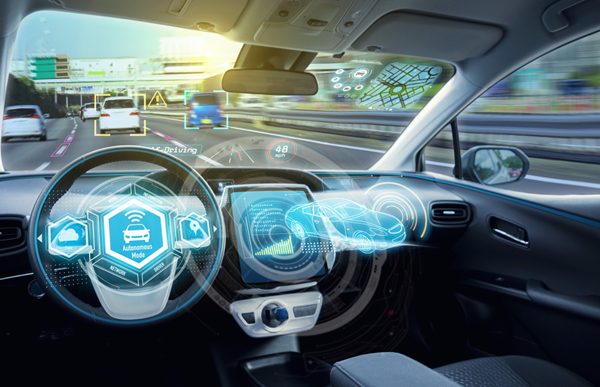NGC of AV: Navigation, Guidance and Control of Autonomous Vehicles
Scope:
Integrated Wireless, Multi-Sensor, Multi-Perception Systems for High-Precision Positioning, Guidance and Control of Autonomous Vehicles
Autonomous vehicles (AVs) promise to enhance safety, reduce emissions, and improve transportation system efficiency and reliability. The growing demand for AVs is shaping the future of the automotive industry by transforming the in-vehicle experience and paving the way for large-scale implementation of autonomous driving. The positioning, guidance, and control technologies for future Avs are rapidly advancing. They require on onboard intelligence relying on a suite of sensors and systems such as global navigation satellite systems (GNSS) receivers, mmWave wireless technology (5G/6G), vehicle motion sensors and remote sensing systems including cameras, light detection and ranging (LiDAR) and radar. AVs that can sense the environment and navigating without human input require robust advanced positioning, navigation, and guidance for efficient operation in all environments and weather conditions. The availability of the above sensors and systems in future AVs provides an attractive opportunity to advance the robustness and safety of autonomous driving. This workshop will seek original contributions covering advanced topics related to the state of the art and future trends of positioning and mapping as well as control and guidance technologies for autonomous vehicles and future self-driving.
The workshop will be part of the ISPRS Geospatial Week 2023 and is hosted the Arab Academy for Science, Technology, and Maritime Transport (AASTMT) in parallel with several related geospatial workshops.
.

CHAIRS
Themes:
-
GNSS based high precision positioning in challenging urban environments.
-
New wireless technologies and methods for AV connectivity, cooperative perception, positioning, and path planning.
-
Recent technical advances in perception systems meeting the growing AV demands.
-
Advanced AI-based multi-system fusion for positioning, mapping, and guidance.
-
Machine-learning based object identification, classification, and mapping.
-
Innovative self-Localization and mapping (SLAM).
-
Control of AVs and mobile robots.
-
Communication schemes for multiple AVs.
-
Innovations in other autonomous systems (UAVs, UGVs, and drones)
-
Applications of AVs.
Scientific Committee:
| Cairo Lúcio Nascimento Junior | Professor, ITA, Brazil |
| Mohamed Tamazin | Senior GNSS Architect, Safran Navigation and Timing |
| Paul Hershey | Principal Engineering Fellow, Raytheon, USA |
| Mohamed Elhabiby | CEO, Micro Engineering Technologies Inc. |
| Caroline Channel | Professor, ISAE-Supaero, France |
| Ashraf Abosekeen | Assistant Professor, Military Technical College, Cairo, Egypt. |
| Umar Iqbal | Associate Professor, Mississippi State University, USA |
| Amr Elwakeel | Assistant Professor, University of Western Virginia, USA |
| Peter Travis Jardine | Adjunct Professor, Royal Military College of Canada, ON, Canada |



